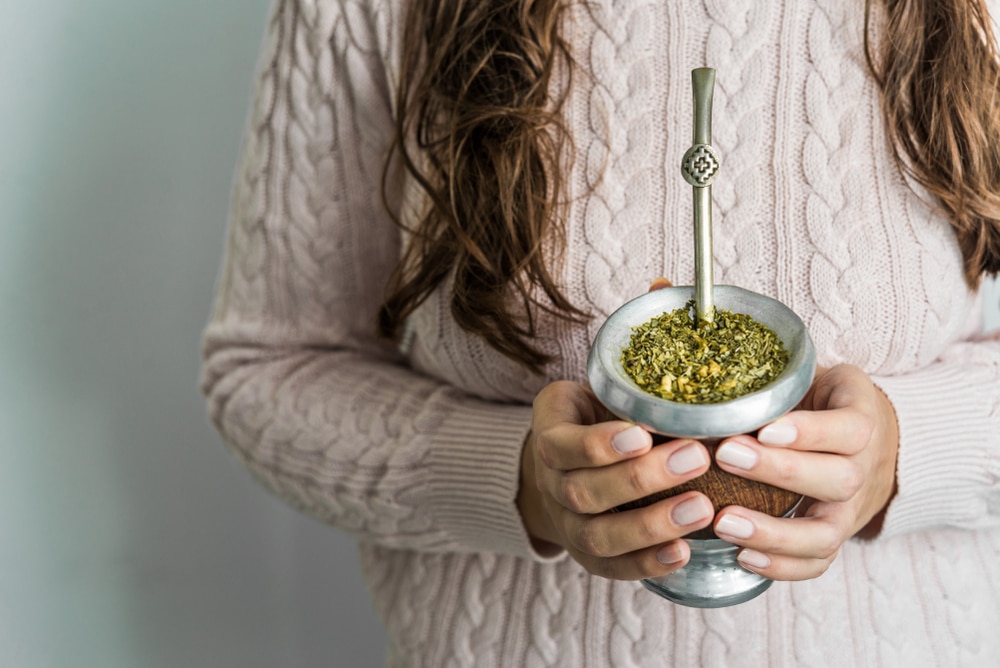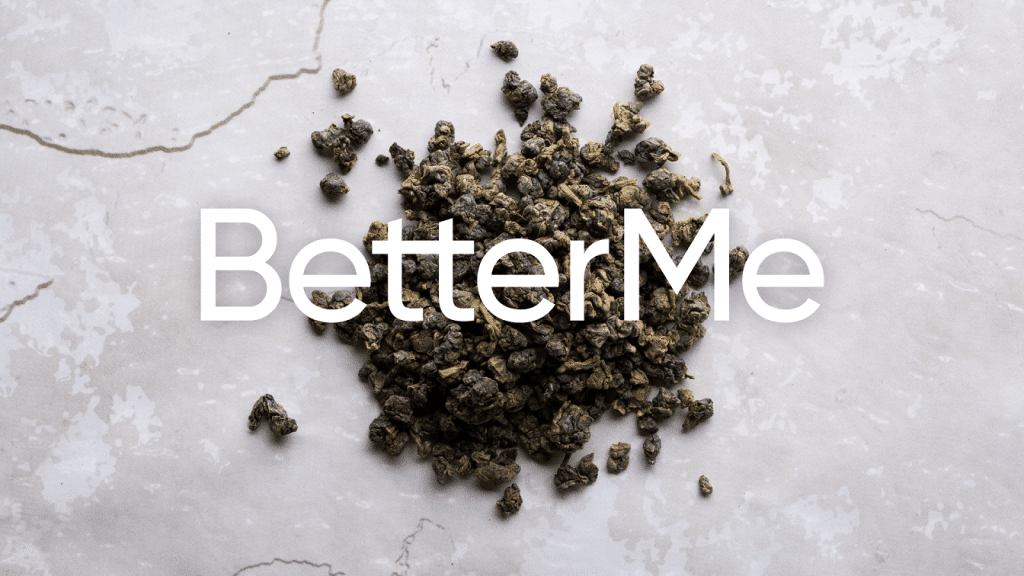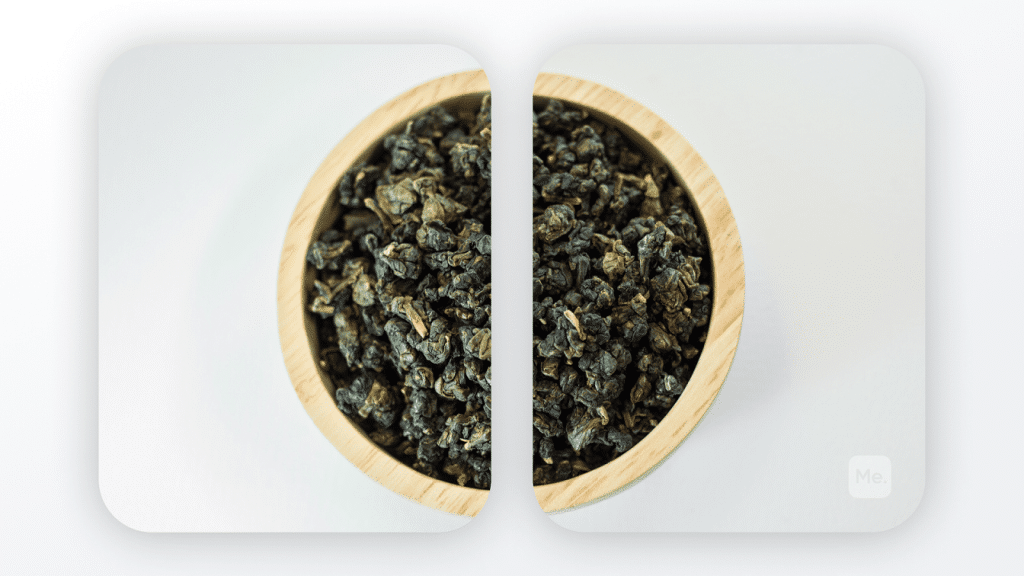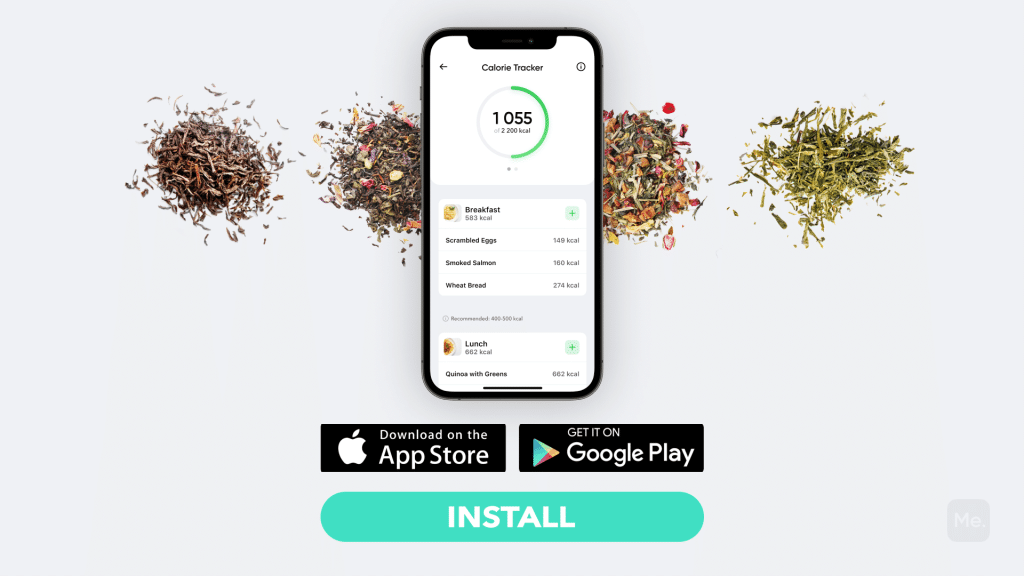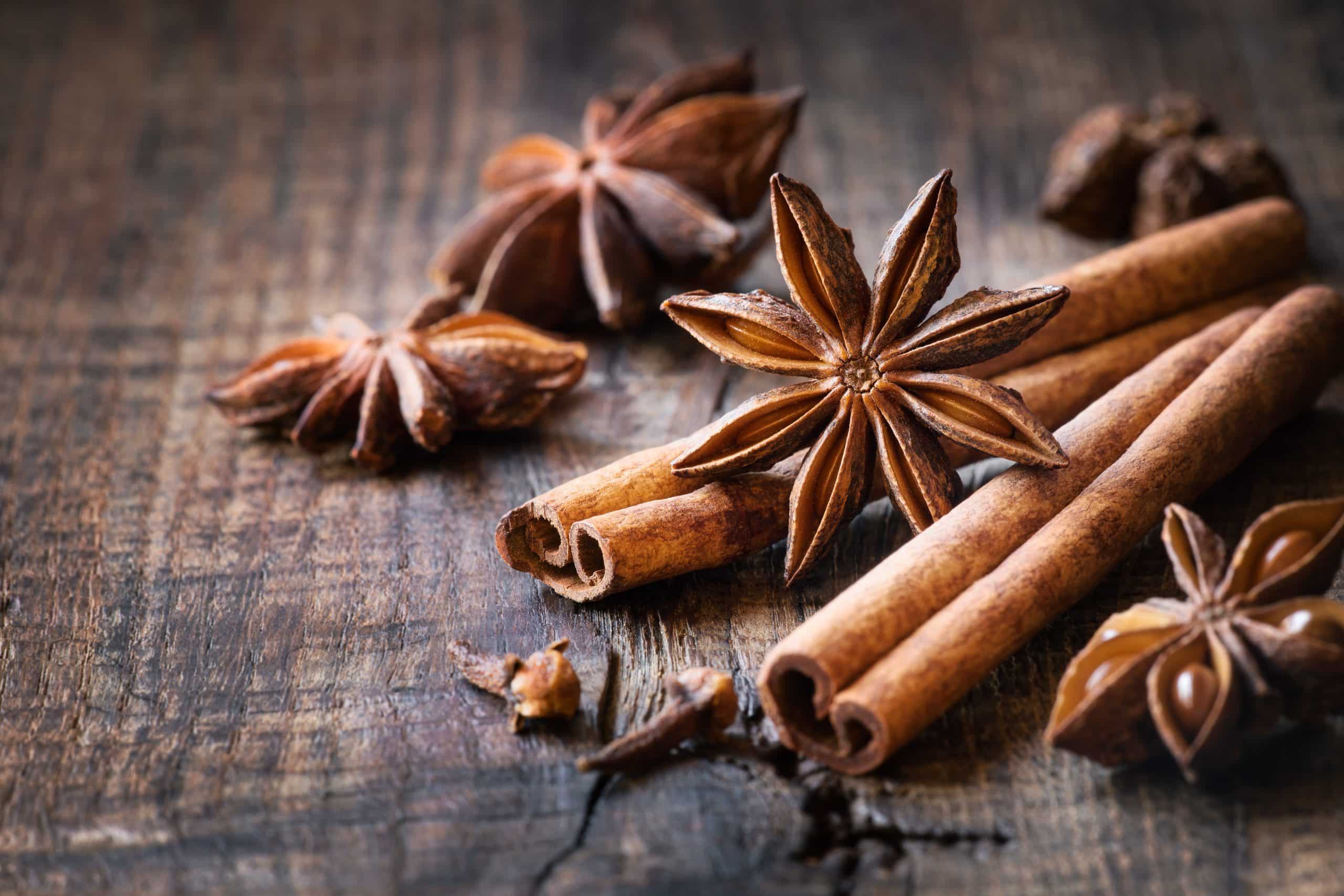Yerba mate, also known as maté, is a type of plant native to South America. It has been consumed for centuries by the indigenous peoples of this region and was traditionally used in ceremonies involving singing and dancing. The leaves are dried and ground into a powder that can be steeped like tea or brewed with hot water – like an herbal infusion. It’s often mixed with other ingredients such as sugar. This drink can have either stimulating or sedating effects depending on how much you consume. In this article, we’re going to take a look at the health effects of yerba mate and whether or not you need to be concerned with its safety.
Mate Tea Nutrition Facts
What exactly does mate tea contain? There are several beneficial nutrients in yerba mate, including antioxidants, vitamins C and E, zinc, iron, calcium, magnesium, manganese, niacin, pantothenic acid, amino acids (that support the body’s metabolism of carbohydrates), and fats. It even has some fluoride (22).
One of the most surprising components of mate tea is caffeine. At 40 mg of caffeine per cup, yerba mate contains less caffeine than coffee but more than a cup of tea (21).
Mate Tea Health Benefits
Maté has many positive attributes that can help improve your overall health.
These benefits are as follows:
Provides Your Body With A Good Source Of Antioxidants
One of the most well-known benefits of yerba mate tea is its ability to improve your overall health and prevent disease because of what it contains – antioxidants (15).
Antioxidants help prevent free radicals from causing oxidative damage to your body’s cells. They neutralize highly reactive molecules called free radicals, which can lead to changes in your DNA and other parts of your cells.
Antioxidants facilitate the transfer of electrons between molecules, so it’s easier for them to break down harmful chemicals without causing harm to healthy cells. Antioxidants may also reduce inflammation levels in the body by preventing the production of inflammatory molecules called cytokines.
The components responsible for these positive effects on your body are (22):
- Xanthines. This compound is naturally found in mate tea. It stimulates the central nervous system and can increase your alertness levels. This stimulant also increases coronary blood flow, so you’ll have stronger heartbeats, which means more oxygenated blood will go to all parts of your body. As an antioxidant, xanthines prevent oxidation-related diseases, including cardiovascular disease, stroke, pulmonary hypertension, type 2 diabetes, age-related macular degeneration (AMD), Alzheimer’s disease, and many others.
It has been found that drinking hot beverages like tea can help lower the risk of AMD due to its powerful antioxidants called xanthines (17).
- Caffeic Acid. While this acid may not be as effective as other natural antioxidants, it is a powerful anti-inflammatory. Caffeic acid can reduce the amount of inflammation that occurs as a result of oxidative damage. This lowers your risk for many chronic conditions, including heart disease and cancer.
- Catechin. These are antioxidants that also lower blood pressure levels by relaxing the muscles around your arteries so they won’t contract as much. This allows more blood to flow through them, which leads to less hardening of the arteries and high blood pressure levels. Antioxidants cut down on cardiovascular problems by preventing damage done on a cellular level from free radicals.
- Saponins. These are natural compounds that can help dissolve cholesterol and promote better cardiovascular health.
- Polyphenols. Polyphenols are natural antioxidants that can help prevent mutations in your DNA. Mutations may result in the formation of cancer cells, which can lead to various forms of cancer, including breast, colon, leukemic, and esophageal cancers.
Read More: Peppermint Tea Facts, Health Benefits And Side Effects
Boosts Energy And Improves Mental Focus
There is a good amount of caffeine in yerba mate tea, which improves your energy levels. It also helps improve your mental focus, concentration, and alertness because of the stimulant effect it has on the central nervous system.
Caffeine increases your brain’s serotonin levels. Serotonin is a chemical that can boost happiness and reduce depression symptoms by affecting the pathways in your brain that control mood and emotions (6). Another plus is that caffeine may even help you lose weight by maintaining blood glucose levels and influencing fat oxidation processes (13).
Reduces Pain And Inflammation
Yerba mate contains analgesic compounds, such as chlorogenic acid, saponins, beta-sitosterol, linoleic acid, and oleic acid (2). These components reduce inflammation levels and pain caused by arthritis, muscle injuries, lupus, and other autoimmune diseases.
Yerba maté may also have anti-inflammatory properties due to high levels of magnesium in its leaves (1). Magnesium can help prevent cell damage by transporting vital nutrients into cells more effectively, reducing blood sugar levels, improving nerve function, and fighting anxiety.
Helps You Burn Fat
Yerba mate tea has caffeine, which may help you burn more calories than usual because it makes your system work harder to break down fats (3). The compounds in yerba mate also promote better metabolic health by increasing the rate at which the body processes food, so it releases fatty acids into your bloodstream. This can lead to an increase in energy levels as well as make you feel less hungry all day long.
Aids Digestion
Mate tea contains saponins, which act as natural laxatives. Just like most other digestive enzymes, saponins help cleanse your colon, remove harmful bacteria, and make digestion more efficient (16).
Cures Hangovers
Yerba mate’s compounds are excellent antioxidants that can help cure hangovers by reducing the harmful effects of alcohol on your liver. This is because it prevents free radicals from forming, which can result in serious health problems. Chlorogenic acid, quercetin, rutin, and other saponins work together to stop these molecules before they damage your cells.
May Lower Your Risk Of Heart Disease And Cancer
Oxidation is a process that can damage your cells and lead to various health problems, including cancer, arthritis, cardiovascular issues, and many others. Polyphenols in mate tea inhibit oxidation by neutralizing harmful molecules. They also lower cholesterol levels and promote better heart health (10)(14).
BetterMe app will kick you out of the mental funk, shake off your extra weight, rid you off your energy-zapping habits, and help you sculpt the body of your dreams. Intrigued? Hurry up and change your life for the better!
May Lower Your Risk Of Diabetes
Chlorogenic acid has been linked to insulin regulation, which makes it easier for your body to regulate blood sugar levels. It’s especially helpful for people with type 2 diabetes because the polyphenols keep sugar from entering cells, so it stays in the bloodstream and doesn’t cause further complications (4).
Helps Fight Cravings For Sweets
Caffeine is often used by dieters because it can suppress your appetite (5). It can do this because of its effect on the neurotransmitters in your brain. These chemicals control your appetite, emotions, motility (the rate at which you move), sleep cycles, and other bodily functions. By suppressing these nervous system messengers, caffeine causes you to eat less but feel more energetic. It also increases your metabolic rate, so you burn calories faster, resulting in weight loss.
Provides You With A Full-Body Cleanse
One way yerba mate helps cleanse your body is through its diuretic properties (22). Diuretics increase urination, which removes excess fluids from your body along with any toxins or wastes that may have been stored in these fluids. This flushes out extra salt, proteins, and electrolytes that are harmful to your body (11).
When you stop taking diuretics, these toxins and excess liquids can build up again, causing retention issues. Yerba mate tea can prevent this because the water you drink with it stays in your system for longer periods. This means all the nutrients you’re consuming are slowly filtered through your kidneys, so there won’t be a large concentration of them at any one time.
Boosts Your Immune System
Another well-known benefit of yerba mate tea is that it can boost your immune system and help protect you against colds and other infections.
It contains several nutrients that have been shown to fight off disease-causing organisms, such as (12):
- Selenium
- Zinc
- Iron
- Vitamin C
Read More: Ginger Cinnamon Tea Facts, Health Benefits And Side Effects
Mate Tea Side Effects
Like most things, too much yerba mate tea can have negative consequences.
Some of the mate tea side effects to watch out for include:
Nutrient Deficiencies
A potentially dangerous side effect of drinking yerba mate tea too often is the possibility of developing nutrient deficiencies. If you’re only taking in liquids, it can be difficult to get all the nutrients you need each day. This will lead to long-term health problems.
People have reported becoming anemic after consuming large amounts of yerba mate tea for a prolonged period. They experienced this because the high levels of tannins in the leaves bind with proteins in your system and prevent them from being used efficiently by your body (19).
Anemia occurs when there are fewer red blood cells in your bloodstream than normal, or they don’t contain enough hemoglobin. This causes you to develop fatigue and other symptoms associated with nutrient deficiencies.
It’s also possible that yerba mate can cause mineral deficiencies, such as calcium and magnesium. This is because they bind together and could be excreted from your body in the form of urine. Eat a healthy diet to counteract this side effect by consuming other nutrient-rich foods like kale, spinach, broccoli, almonds, pumpkin seeds, flaxseeds, oatmeal, or walnuts.
You should also add some type of bone broth to your diet to ensure you’re getting adequate amounts of important minerals like potassium, sodium, and phosphorus. These nutrients will help keep your bones strong and prevent them from becoming brittle.
Increased Risk Of Respiratory And Digestive Tract Cancers
Mate contains carcinogens that have been linked to causing respiratory and digestive tract cancers (9). The levels of these compounds are much higher than what’s found in other teas. Drinking mate tea regularly could put you at risk for developing cancerous cells in your mouth, esophagus, stomach, lungs, or pancreas.
Caffeine-Related Side Effects
It’s important to remember that although it has less caffeine than coffee, yerba mate does contain caffeine. Caffeine can have a stimulating effect on your central nervous system. This can lead to restlessness, irritability, and rapid heart rate if you drink excessively. It could also interfere with your sleep patterns or cause insomnia if you drink it too late in the day (20).
Interaction With Medicines
If you’re taking any medications, you should also be careful because yerba mate contains an alkaloid called mateine that can interfere with how your body absorbs some types of drugs or increase their effectiveness. It may also reduce the negative side effects of some diabetic medications if taken before meals (7).
You should also talk with your doctor before using medicinal teas like yerba mate if you have any type of serious medical issue like heart disease, high blood pressure, diabetes, or cancer. If you decide to use this type of tea medicinally, be sure to consult with your physician about the best dosage for treating your condition.
Lean and toned up body isn’t just a far-fetched fantasy. Check out the BetterMe app and watch it propel your weight loss journey into high gear!
Dependency
Many people who drink tea regularly become immune to its effects, but others will develop an addiction because of the caffeine (8). If this is the case, you should avoid yerba mate tea because it could fall into a pattern of habitual use. If this happens, you may find yourself unable to stop drinking yerba mate even though it isn’t doing any good for your health.
Unhealthy Additives In Store-Bought Brands
It’s also important that you check ingredients labels if you buy yerba mate at a health food store because it could have some unwanted additives if they’re not listed on the label. This is why it’s better to grow yerba mate yourself instead of buying it from someone else if possible.
You can find some growing tips online but keep in mind that you must maintain good soil quality and only harvest leaves when they are young, so they contain fewer tannins. You should also try to avoid harvesting leaves when they’re wet because yerba mate plants contain rotenone, which is a poisonous substance that can make you sick.
Harsh On Your Digestive System
Just like black tea and red wine, there are some health risks associated with drinking yerba mate tea too often because it contains tannins. Tannins are compounds found in certain plants that have been shown to have antioxidant properties but are also known for being harsh on your digestive system. They can interfere with your body’s ability to absorb important nutrients, cause diarrhea or constipation, and irritate the lining of your mouth (18). This makes it harder to eat the food you need for optimal health.
The Bottom Line
Drinking mate tea can be a refreshing and energizing experience, but you need to drink it in moderation; otherwise, it can have some unwanted long-term effects. Make sure not to overdo it and to also pay attention to what’s in your yerba mate if you buy it from a store. It should be free of additives and contain only the natural leaves of yerba mate that you steep in hot water. If you’re concerned about the amount of caffeine in your diet, consider switching from black tea to green tea instead since it has a lower concentration of this stimulant.
Get your personalized
meal plan!
DISCLAIMER:
This article is intended for general informational purposes only and does not address individual circumstances. It is not a substitute for professional advice or help and should not be relied on to make decisions of any kind. Any action you take upon the information presented in this article is strictly at your own risk and responsibility!
SOURCES:
- Anti-inflammatory Activity of Magnesium Isoglycyrrhizinate Through Inhibition of Phospholipase A2/Arachidonic Acid Pathway (2015, pubmed.ncbi.nlm.nih.gov)
- Anti-inflammatory effects of yerba maté extract (Ilex paraguariensis) ameliorate insulin resistance in mice with high fat diet-induced obesity (2011, sciencedirect.com)
- Anti-obesity and anti-diabetic effects of Yerba Mate (Ilex paraguariensis) in C57BL/6J mice fed a high-fat diet (2012, ncbi.nlm.nih.gov)
- A Randomized Crossover Intervention Study on the Effect a Standardized Maté Extract (Ilex paraguariensis A. St.-Hil.) in Men Predisposed to Cardiovascular Risk (2020, mdpi.com)
- Caffeine, coffee, and appetite control: a review (2017, pubmed.ncbi.nlm.nih.gov)
- Caffeine and the central nervous system: mechanisms of action, biochemical, metabolic and psychostimulant effects (1992, pubmed.ncbi.nlm.nih.gov)
- Caffeine Molecule (n.d., worldofmolecules.com)
- Caffeine – StatPearls (2021, ncbi.nlm.nih.gov)
- Cancer and yerba mate consumption: a review of possible associations (2009, pubmed.ncbi.nlm.nih.gov)
- Consumption of yerba mate ( Ilex paraguariensis ) improves serum lipid parameters in healthy dyslipidemic subjects and provides an additional LDL-cholesterol reduction in individuals on statin therapy (2009, ncbi.nlm.nih.gov)
- Diuretics: a review (2012, journals.sagepub.com)
- Free Radicals, Antioxidants in Disease and Health (2008, ncbi.nlm.nih.gov)
- Metabolic effects of caffeine in humans: lipid oxidation or futile cycling? (2004, academic.oup.com)
- Plant Polyphenols as Dietary Antioxidants in Human Health and Disease (2009, ncbi.nlm.nih.gov)
- Polyphenolic compounds, antioxidant capacity, and quinone reductase activity of an aqueous extract of Ardisia compressa in comparison to mate (Ilex paraguariensis) and green (Camellia sinensis) teas (2004, pubmed.ncbi.nlm.nih.gov)
- Saponin-Based, Biological-Active Surfactants from Plants (2017, intechopen.com)
- Tea and Risk of Age-Related Cataracts: A Cross-Sectional Study in Zhejiang Province, China (2016, ncbi.nlm.nih.gov)
- The Impact of Tannin Consumption on Iron Bioavailability and Status: A Narrative Review (2017, academic.oup.com)
- The Impact of Tannin Consumption on Iron Bioavailability and Status: A Narrative Review (2017, pubmed.ncbi.nlm.nih.gov)
- The Safety of Ingested Caffeine: A Comprehensive Review (2017, frontiersin.org)
- Yerba Mate Tea (n.d., caffeineinformer.com)
- Yerba Mate Tea (Ilex paraguariensis): A Comprehensive Review on Chemistry, Health Implications, and Technological Considerations (2007, ift.onlinelibrary.wiley.com)
